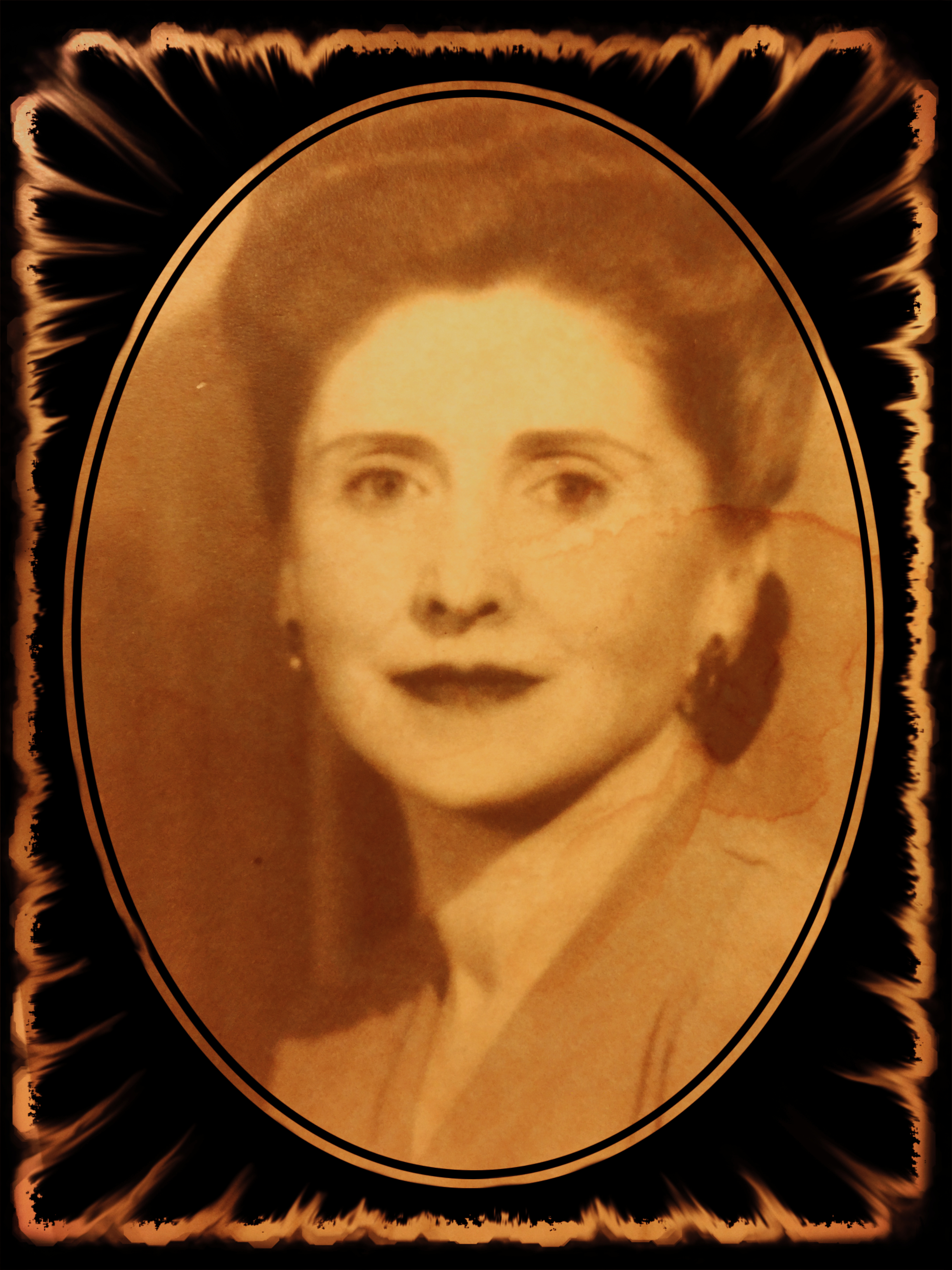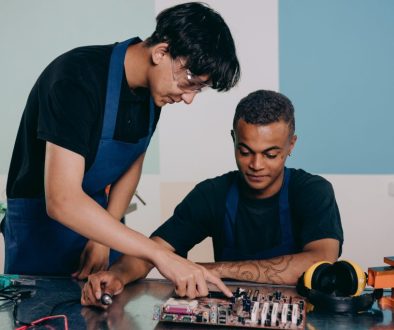Donna Levin: My Grandmother, the Rabbi’s Wife
My grandmother, Rae Stern, was born 50 years too early for the feminist movement, but 80 years before the drugs that might have helped her take advantage of it.
My grandmother was the rabbi’s wife. The rabbi, of course, was my grandfather, and the synagogue in question was Temple Sinai, the large Reform Jewish synagogue of the East Bay.
My grandfather was prominent locally, and deservedly so: He was intelligent, compassionate, and a charismatic speaker. Perhaps most of all, though, he was dedicated, though in the rabbinate, being a workaholic (which runs in my family) never makes you rich. It barely paid my grandparents’ bills.
My grandmother was the perfect rabbi’s wife: She headed the Temple sisterhood, taught 4th grade Sunday school, entertained congregants and visiting dignitaries. She was well-read, and gifted at polite but elegant conversation.
Another quality my grandparents shared was that they cared what other people thought. A lot.
Which put them in exactly the right, or exactly the wrong, profession. Granddad’s job depended on the will of the people, as personified by the temple board of directors. My aunt savored the story of how the daughter of one of those directors often taunted her, “My father can get your father fired.” My aunt told this story hundreds of times, casting herself as victim, and survivor of challenges similar to those of children abandoned in the jungle to be raised by wolves.
I have no memories of victimhood. As the rabbi’s granddaughter, I was admired, petted, and praised. At the onegs (the reception after the Friday night service) I got to stay until the very end, and then leave with cookies in my pockets.
There were whispers between my parents about Grandma’s propensity toward depression. Apparently, when I was an infant, there’d been an Episode. Details were unavailable—not that I ever asked.
When she was with me, she was always, and only, cheerful. I stayed at my grandparents’ house often, sometimes for days. Grandma took me everywhere she went. One of our frequent outings was to the department store in downtown Oakland, Capwell’s (my mom called it “Crapwell’s”), where she bought me clothes and lunch. And after the Purim Carnival, if there were any prizes left over, she slipped them to me. (ssshhh)
Meanwhile, since my grandfather was one of six children, she hosted big gatherings on holidays, Jewish and secular, where there were great-aunts, great-uncles, and a bevy of second cousins.
Then, when I was eleven years old, my grandfather committed his first cruel act: He died, three months after being diagnosed with pancreatic cancer.
His death pulled the key Jenga tile from the tower. When it collapsed, the congregation that loved him, the family who adored him, and the woman who had welded her life to his, lay in the rubble.
Without granddad, there were no more family dinners. My grandmother’s version was that this extended family abandoned her, but the truth must be more complex; it always is. For one thing, it turned out that my grandmother had not been as happy as I had thought, making sit down dinners for 12-plus people.
But that was a small part of it. She was no longer the Rebbetzin (the Yiddish word for the Rabbi’s wife; “Rabbanit” in Hebrew). In effect, she lost her job.
Nowadays, there are plenty of women rabbis, at least among Reform, Conservative and Reconstructionist communities. The chief rabbis of my own synagogue, here in San Francisco, are a husband-and-wife team, a spiritual power couple.
But even though my grandmother wanted her granddaughters, and even her daughters, to have careers (my aforementioned aunt became a lawyer in her 40s), those careers would be in addition to respectable marriages. The aforementioned feminist movement had arrived too late to shape her own ambitions: She simply didn’t think of herself that way.
There was another obstacle, as well, and it came rising from the detritus of Jenga tiles: Grandma’s depression, heretofore only-whispered-about, and never witnessed by yours truly, revealed itself as full blown, capital-D—no wait, make that all caps: DEPRESSION.
Her motto was, “No one wants a widow around.” She repeated this obsessively; Frances McDormand’s character got less attention with her three billboards.
Grandma Rae kept busy. She was on the Committee for Something and the Board of Something Else. But she was a holdover, a continuing reminder to people of Granddad, the popular, the real, rabbi. All these activities were inherited from him. In the view of the congregation, she was the Widow Stern—which view she did nothing to alter.
What she needed, I believe, was meaningful work of her own, something that was more than just a holdover from the glory days of Rebbetzinhood.
And I can’t help but wonder if a few milligrams of Lexapro might have made the difference.
Doubtless these drugs are overprescribed, as a balm for First World Problems, and/or a substitute for the harder work of psychotherapy. But when I think of my grandmother’s nearly 25 years of widowhood, I wonder. Maybe for her it would have been like insulin for a diabetic, antibiotics for an infection.
At the time of granddad’s death, she was younger than I am now. Maybe she could have found a paying job. She was always short of money, though she was a careful manager: she lived on a scant pension from the synagogue and social security. Maybe—this is a big leap now, but humor me—maybe she could have started her own business.
Now it’s time to make this about me: she could have made all of us less miserable with her self-pity, I mean depression.
A lot of maybes. This much I’ll always know: She was my grandmother. She loved me. I loved her.
###
Donna Levin is the author of four novels, all of which are available from Chickadee Prince Books. Her latest novel, He Could Be Another Bill Gates, was published this month; it’s available on Amazon, Barnes and Noble, or at the bookstore right across the street from your home. Please take a look.



